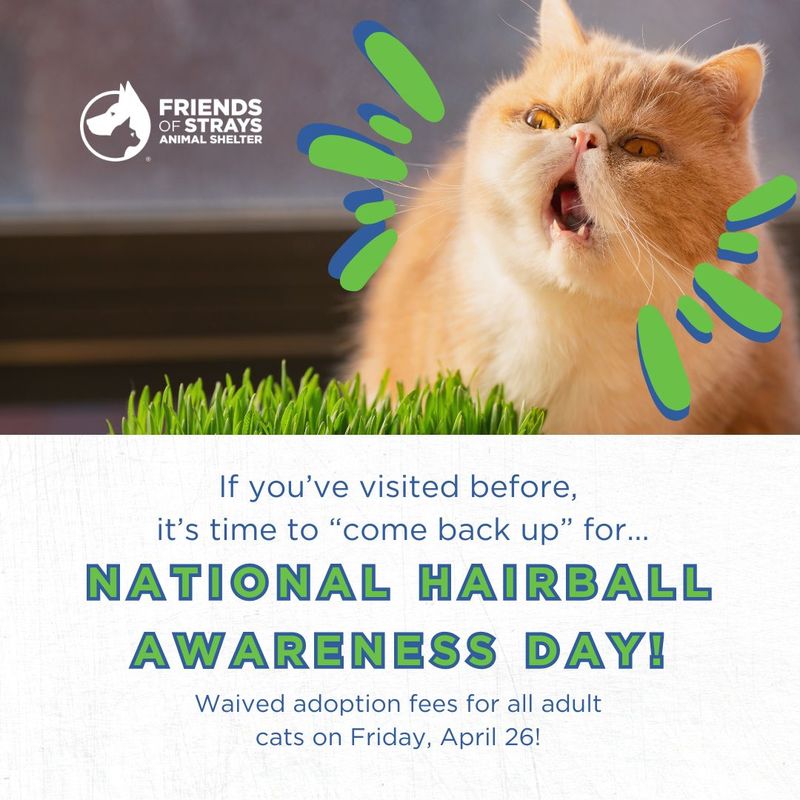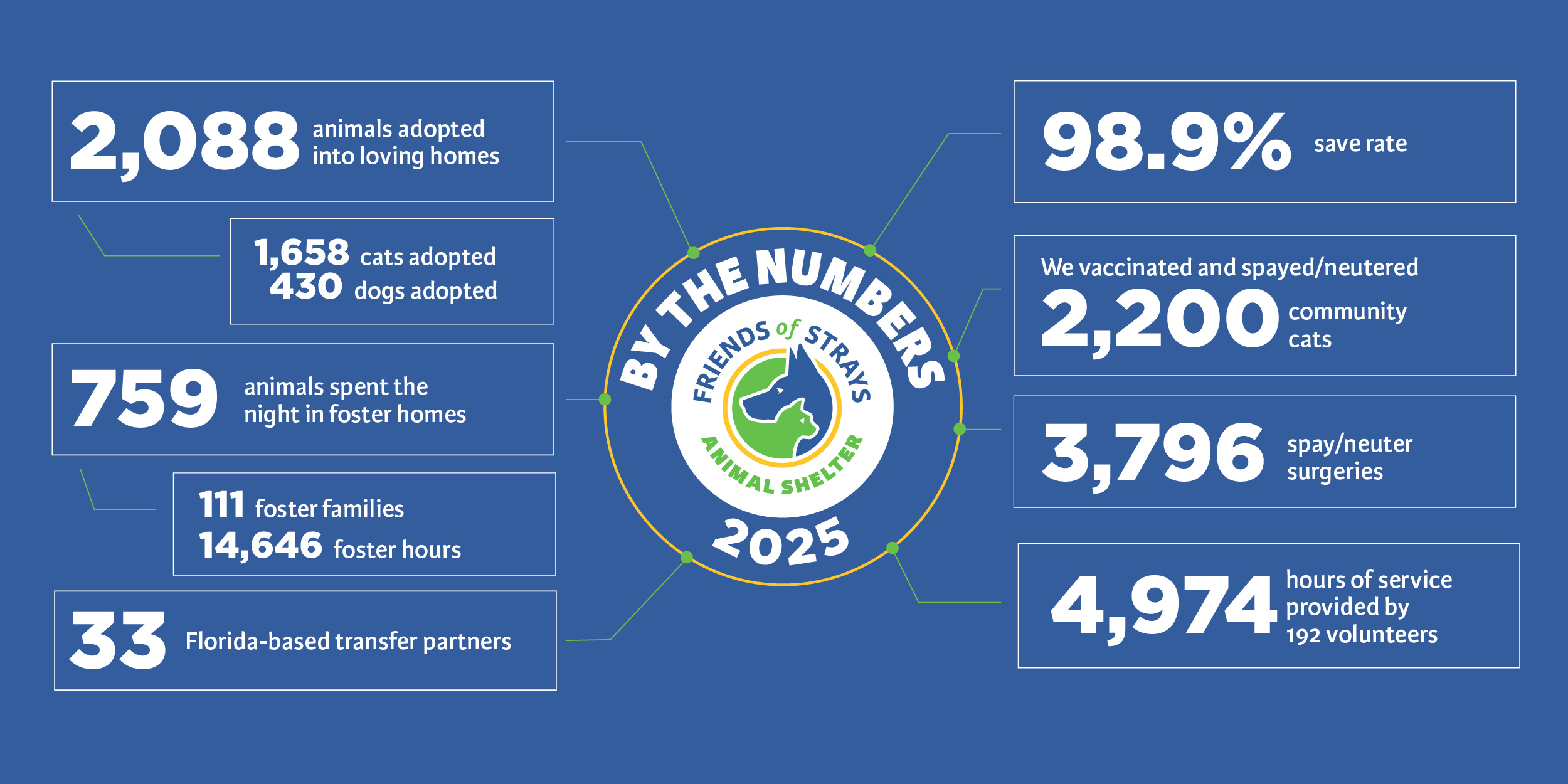National Hairball Awareness Day Adoption Special and more information about hairballs!

Thursday, April 25, 2024
If you’ve ever had a cat, you know that nothing can bring you out of a dead sleep like that sound they make when producing… a hairball!
April 26 is National Hairball Awareness Day, and we couldn’t pass up the opportunity to have fun with that and provide some education on this common cat issue! Friday, April 26 only, adoption fees will be waived at the shelter on our adult cats, 1-year-old and up!
Now, what are hairballs and why do they happen?
Hairballs in cats are one of the top concerns people have about their cat's health. But, they are naturally occurring, as cats ingest fur as they groom themselves and sometimes it accumulates instead of passing, causing them to retch up that icky tube of hair.
Longhaired cats are more likely to experience hairballs for the simple fact that they have so much more hair. Seasonal changes, causing shedding, can also make hairballs a little more common during certain parts of the year in cats of all coat lengths.
Are hairballs anything to be concerned about?
According to an article from the Cornell Feline Health Center, a hairball once every week or two is not uncommon.
But if you start to notice your cat coughing up hairballs more frequently, especially combined with constipation or excess hair in stools, loss of appetite, or lethargy, there may be something more going on. More frequent hairballs and more frequent grooming could also be a sign of skin conditions and allergies, as well. If you notice any of those symptoms, you should schedule an appointment with your vet so they can examine your cat for any underlying issues. If you notice your cat attempting to hack up a hairball repeatedly and nothing is produced, it could also be a sign that the accumulated hairball is too large to pass back up the esophagus or down through the intestinal tract. This is a serious issue that you should seek immediate care for.
Can you do anything to prevent or minimize hairballs?
Helping your kitty shed will reduce the amount of fur ingested, so you can regularly brush your cat or seek out a cat-specific groomer. You can check with your vet to see if they recommend any over-the-counter products that aid with shedding, like special de-shedding shampoos. Some cat foods are also formulated to help cats pass ingested fur, so you can also ask your vet about hairball control food. Sometimes a laxative may help, but this medication should never be given without the approval and supervision of your vet.
This information was approved by our medical team and supplemented by an article from Hills.

